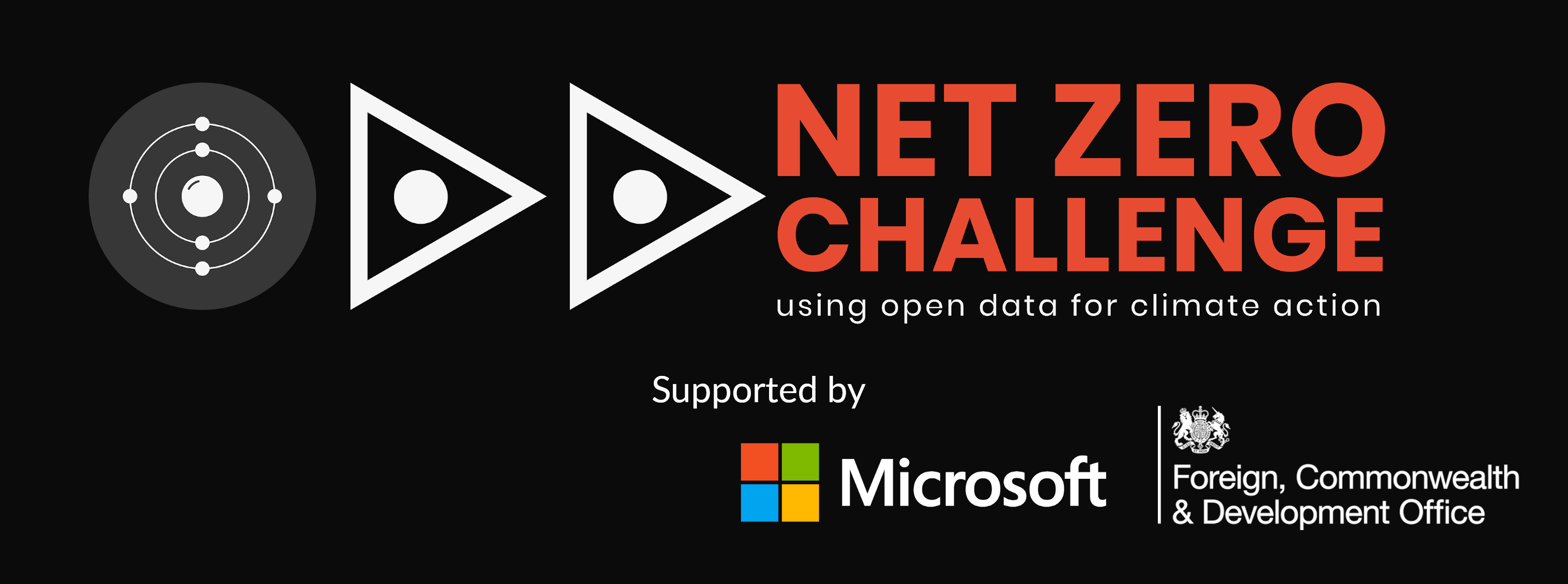Three months ago, the team at Open Knowledge Foundation launched a new project – the Net Zero Challenge – a global competition to identify, promote and support innovative, practical and scalable uses of open data that advance climate action.
We received over 80 applications from 40 different countries. Many of them were excellent.
From the applications, we chose a shortlist of five teams to compete in a live pitch contest event. Each team had three minutes to explain their project or concept, and up to seven minutes to take questions from the Panel of Experts and the live audience.
Watch the recording of the live event here.
Today we are pleased to announce the winner of the Net Zero Challenge 2021 is CarbonGeoScales – a framework for standardising open data for GHG emissions at multiple geographical scales. The project is built by a team of volunteers from France – supported by Data for Good and Open Geo Scales. You can check out their Github here.
The winning prize for the Net Zero Challenge is USD$1000 – which, we are told, will be spent on cloud storage.
A few days ago, we caught up with the team from CarbonGeoScales to learn about who they are, what they are doing and how their project uses open data to advance climate action.
Watch our interview with the CarbonGeoScales team here.
We would like to thank all the teams who competed in the Net Zero Challenge 2021 – especially the four other teams who were all shortlisted for the pitch contest. We are grateful to the Panel of Experts to taking the time to judge the contest – especially to Bonnie Lei from Microsoft’s AI for Earth – who joined at the last minute. Thanks also to Open Data Charter and the Open Data & Innovation Team at Transport for New South Wales for their strategic advice during the development of this project.
The Net Zero Challenge has been supported by our partners Microsoft and the UK Foreign, Commonwealth & Development Office.
Adrià works for Open Knowledge Foundation as Technical Lead. As a software developer, he is focused on the Web and Open technologies in general, and the geospatial field in particular. Before joining OKF he built and managed several geo-related projects for different organizations, ranging from online map viewers to spatially enabled services and APIs.










